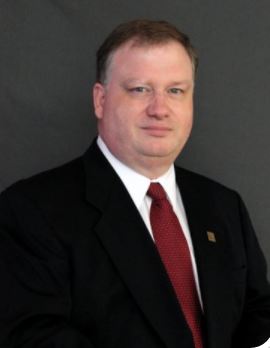An Accidental Career In Public Health
Category : PROspective
Jumping off from his last article about how to get a job at the CDC, Robert Merritt tells the story of how his own career in public health started. To read his previous article “The Many Roads to Federal Service at CDC” click here!
Written By: Robert Merritt
I always felt public service was my calling and destiny. I believe this was fostered by the community where I grew up in the Washington, DC metropolitan area (Fairfax County, Virginia). My neighborhood and county were replete with civil service and military families that encouraged and valued careers in public service. In fact, my own father was a career military officer. So, what path would I chose? Military or civil service?
So, in 1983, I started my undergraduate studies in Virginia at Washington and Lee University (W&L) as a politics major on the path to law school. At the time, I aspired to be a public prosecutor and even worked as an intern for the Rockbridge County Commonwealth’s Attorney. I really enjoyed the legal research part and the victim-witness engagement. However, the passion for the legal profession itself was absent. After that, switching to a business administration and accounting major seemed like a practical, smart move preparing me for a variety of public service administration opportunities. Although I found aspects of both interesting, I neither saw myself as an attorney nor an administrator. I lacked the interest and passion for these fields and was very unhappy – I checked out mentally, partied, and ultimately landed myself on academic probation. The W&L Dean of Students politely informed me that I must improve my academic record immediately or the university would sever its ties with me.
To make a long story short, I found my academic home within the Department of Sociology and Anthropology. The excellent faculty coupled with a challenging curriculum of theory, research methods, and practical experiences inspired me. I found that strong passion and desire for public service again. I was very eager to help people and make the world a better place for everyone. I really loved the applied nature of both these fields and their relevance to social change. It was important to me that I give back to the community and society at large. Thankfully I developed excellent quantitative and qualitative research, oral and written communication, and fieldwork skills that would pay dividends. In fact, my advisor encouraged me to consider applying to graduate programs in anthropology and sociology. Thankfully, with a lot of hard work and summer school, I graduated on schedule from W&L in 1987 and headed to Emory University’s Laney Graduate School. This was prior to the founding of the Rollins School of Public Health (RSPH) in 1990.
I ultimately chose Medical Sociology and Research Methods & Statistics as my areas of concentration (with a bit of medical anthropology thrown in too). After my first year of graduate school, I was asked to serve as a Teaching Assistant (TA) for Emory’s Undergraduate Summer Program at the London School of Economics (focusing on medical sociology and public health). This program was co-directed by Drs. Richard Levinson and Karen Hegtvedt. By the way, this is the very same Richard Levinson that eventually served as the Executive Associate Dean at RSPH. I enthusiastically accepted but was subsequently cut from the program because student enrollment was too low to support a TA. I was disappointed and found myself unemployed for the summer. As luck would have it, Dr. Levinson was on sabbatical from Emory and not making the trip to London either. He was, in fact, working at the US Centers for Disease Control & Prevention (CDC). Taking pity on me, he offered me a summer internship. Please keep in mind, I had no clue what CDC was or did at this point. It was just a job.
Upon reporting for work that summer, I was given two analytic projects and was advised it would likely take me the entire summer to complete them. I finished both in 10 days. I quickly became the most popular person in the group and was asked by the staff scientists to assist with their various analytical projects. I imagine it was my SAS, SPSS, and writing skills that attracted them (all practical skills honed at W&L and Emory). By the end of my internship, I must have completed a dozen or more projects and had a few publications. I finally learned what CDC’s mission was and how the agency impacted public health. It was a good fit for my skill set and my passion for public service. At the conclusion of the internship, CDC asked me to stay and compete for a permanent position. I was offered a position as a health scientist and worked in a variety of areas – behavioral epidemiology, cardiovascular health, smoking and health, and reproductive health until August 2000. At that point, I decided to leave the government and accepted a position in the private sector at a not-for-profit hospital system.
In that role, I served as Director of Clinical Research and Research Integrity Officer at Children’s Healthcare of Atlanta (Children’s) – one of the largest pediatric hospital systems in the United States. I had management oversite for 400+ active research studies and clinical trials; 35+ research support staff; and 75+ hospital-based investigators. As the hospital’s Chief Research Officer, I was responsible for research compliance, human subjects, and research training. I was also actively conducting research in a variety of pediatric sub-specialty areas and public health with collaborators from CDC, State and Local Health Departments, Emory University, and Georgia Tech. I remained at Children’s until 2005 when I returned to CDC.
As a supervisory health scientist, I currently serve as Chief of the Epidemiology & Surveillance Branch in the Division for Heart Disease & Stroke Prevention (DHDSP). I also hold an adjunct faculty appointment at the Rollins School of Public Health and am a Fellow of the American Heart Association. My work tracks trends in cardiovascular risk factors and diseases; engages in epidemiologic and health services research, and supports evidence-based practice and programs. Through epidemiology and surveillance, research, and science translation, this work helps state and national health agencies implement public health strategies to address the burden of heart disease and stroke.
My own academic and public health research career has spanned over 35 years with the Smithsonian Institution (SI), Emory University, Children’s Healthcare of Atlanta, Inc., and the CDC. Although I landed in public health quite by accident, I am convinced that the education and passion I found at both W&L and Emory directly led to advancement and success in my career.

Robert Merritt is a graduate of Washington and Lee University, Emory University, and The University of the South (Sewanee) where he received academic training in sociology & anthropology, medical sociology, public health, and research methods & statistics. His research career has spanned over 30 years with positions at the Smithsonian Institution (SI), Emory University, Children’s Healthcare of Atlanta, and the Centers for Disease Control and Prevention (CDC). He is currently working as a health scientist in the Division for Heart Disease & Stroke Prevention (DHDSP) at CDC.
Featured Image by sebastiaan stam on Unsplash
